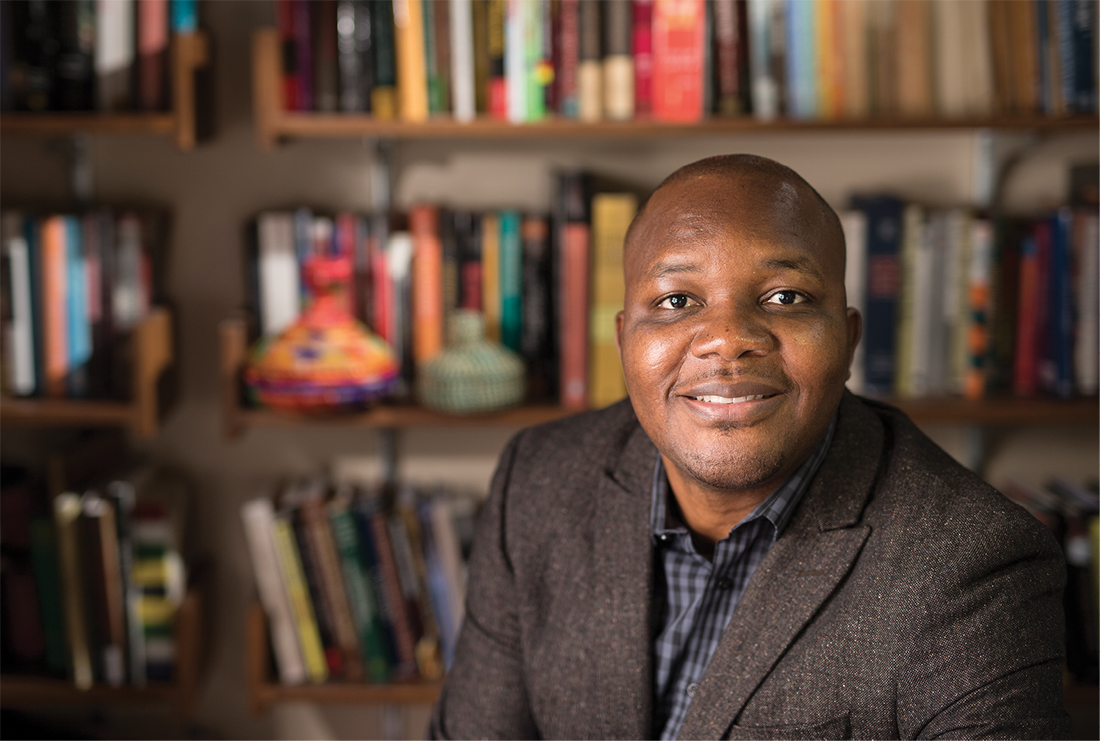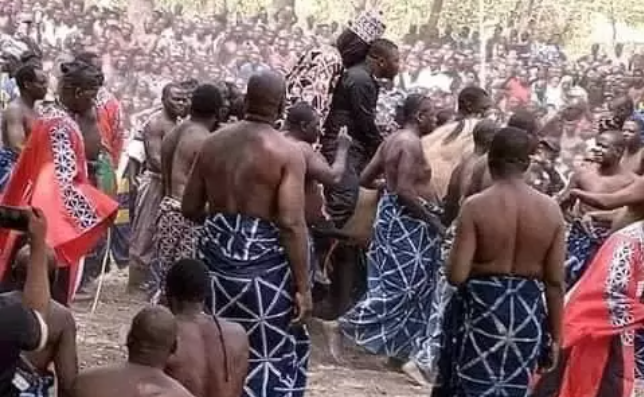The recent funeral of the late Aku Uka of Wukari, traditional ruler of the ancient Jukun empire, one of the oldest in the Nigerian territorial area, was a spectacle to behold. Thanks to social media and the democratization of audiovisual and photographic technology, many of us got to watch it unfold in real time or saw recorded videos of it.
Already, instead of celebrating this beautifully passionate display of an ancient, traditional African funerary practice and its self-affirming and proud survival in the face of colonial and postcolonial pressures, I see the usual derisive and dismissive contempt for the rites from the usual suspects.

The sight of thousands of men, women, boys, and children dressed in the traditional Jukun tiedyed loincloth and emotively marching, singing, and ululating to send their beloved king to the other side is remarkable.
But not everyone is impressed. The Pentecostal crowd is out in full force, condemning what it sees as demonic, cultic funeral rituals of the late king’s transition to the land of the ancestors.
The problem I have with my Pentecostal brethren is that, sometimes, they have a hard time accepting a world in which people of other religions can find their own path to God or spiritual happiness.
The traditional religion of the Jukun is just as legitimate as Pentecostal Christianity. It is definitely older. Both are paths to God, one through the messianic status of Jesus, the other through the mediatory agency of ancestors and their spirits. The practitioners of Jukun religion are just as certain of their their access to God as Christians are of theirs.
The contempt for elaborate, mysterious, and ill-understood Jukun traditional rituals is part of the general perception of traditional practices as inferior fetish and of Christianity and modernity as foreign and superior, even though these two phenomena are neither foreign nor superior. And even though the Bible itself clearly states that people who believe differently and follow a different path to God will be judged according to their own deeds, values, and beliefs on Judgment Day.
Many of the critics hide their bigotry and contempt behind the image of the body of the late Aku Uka riding on a horse tied to a man said to be the person, as tradition demands, to accompany him to his final resting place. This is a euphemism for the man dying and transitioning with the king.
From what I’ve read, the man alone will ride on the horse with the corpse of the King to the final resting place deep in the wilderness, where he is expected to “deliver the king” to the gods and then commit ritual, sacrificial suicide.
In reality, many of the “sacrificial” companions return home, spared by the gods. Only a few do not. The idea is that if the gods wish, they could take the life of the king’s living companion during or at the end of the three-day journey deep in the forest.
In that case, the family would take some solace in the prepaid financial compensation but more importantly in the honor that their brave, self-sacrificial member is now a companion of the king in the afterlife. If the escort returns home, he achieves heroic status and is lionized and venerated as a person who accompanied the king to the other side and returned with supernatural powers and blessings from the gods and the ancestors.
Despite Jukun people and those with intimate knowledge of the religion explaining that the man is a royal servant who signed up for the sacrificial role, many of the critics (from both the Christian and secular modernist perspectives) have pounced on this aspect of the funerary ceremony to condemn the religion of the Jukun as a barbaric cult.
Certainly, cultures and practices evolve or should evolve with the times to respond to changing moral sensibilities and notions of what is morally acceptable. Religious rituals inherited from ancient times that offend the moral paradigms of the present need to be reviewed.
Whether the sacrificial horse rider volunteered for the role or was, as is often the case, dedicated to it from birth, by some oracular divination, or parental decision, this is 2022 and the dead, whether they’re kings or commoners, should be buried alone to travel to their ancestors and/or their maker alone.
However, the existence of this practice is not a reason to condemn, wholesale, the beautiful ancient funerary tradition of the Jukun people, to deride the strong traditional religious devotion of the people, or to disrespect the sacred throne of the great Aku Uka.
For those who do not know, the Kwararafa/Jukun Empire, the postcolonial remnant of which the Aku Uka presides over, was the political cradle of most of the peoples and polities in Central Nigeria (Middle Belt), with the Idoma, Igala, Ngas, Eggon, Berom, Alago, Tarok, Ebira, Awe, and many other ethnic groups in the region tracing their origins or that of their kingship traditions to the great empire.
So great and vast was the Kwararafa empire headquartered in Wukari/Okali that it directly or indirectly ruled over a territory that briefly included Kano.
You can express your discomfort with the sacrificial aspect of the funerary rites without condemning a beautiful, resilient religion, a great kingship institution, or the legacy of an ancient, glorious kingdom.
*Ochonu is a Nigerian academic and Professor of African History at Vanderbilt University, Nashville, Tennessee, United States

